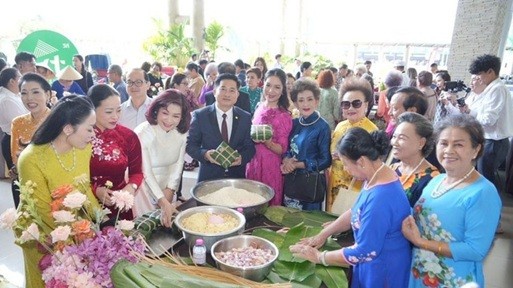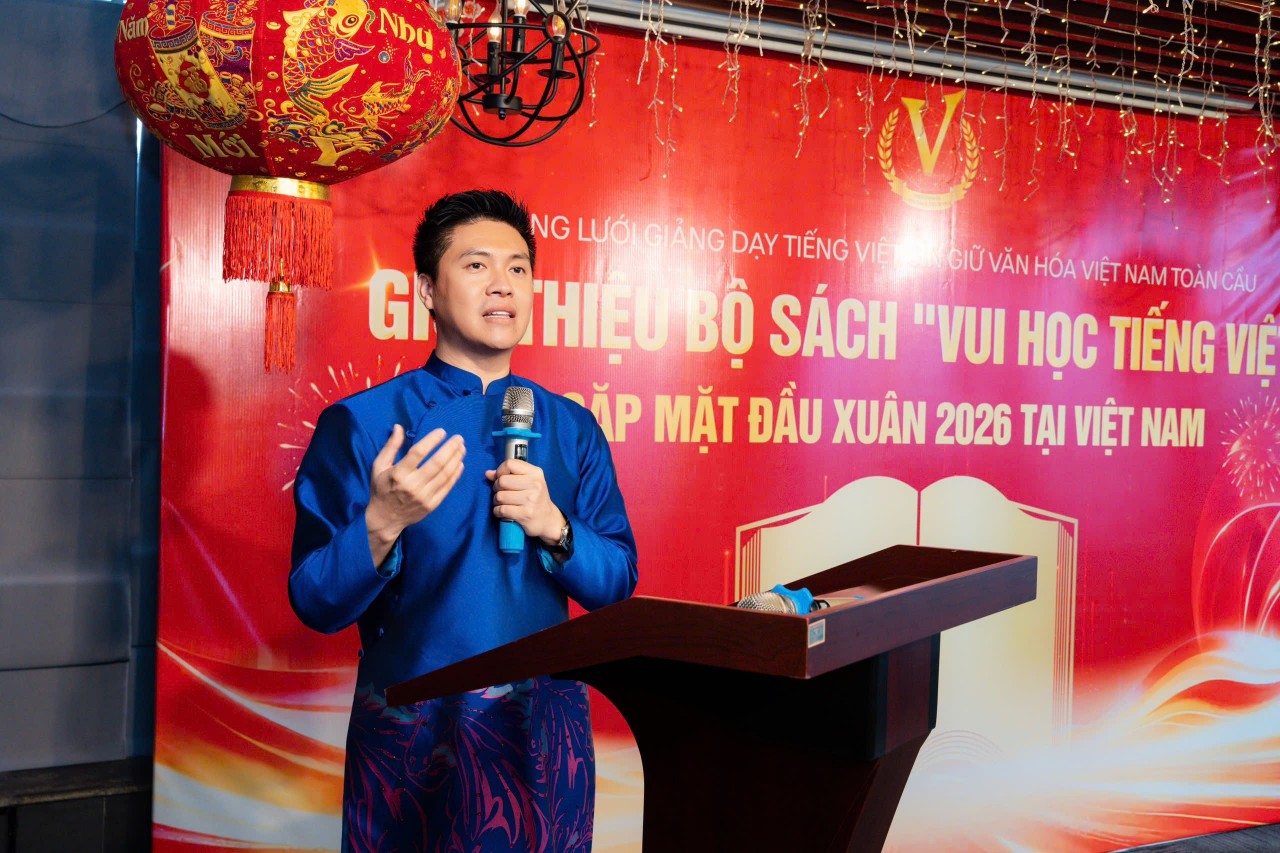Vietnamese Abroad Urge Reforms in Private Sector, Education, and People-to-People Diplomacy
Developing the private sector in connection with innovation and research & development
According to information from the State Committee for Overseas Vietnamese, Tran Hai Linh, member of the Central Committee of the Viet Nam Fatherland Front and President of the Viet Nam-RoK Businessmen and Investment Association (VKBIA), stated that the community of more than 6 million Vietnamese overseas - including businesspeople, experts, and intellectuals with extensive international experience - is a strategic resource for promoting private-sector development, an important driving force identified in the Draft Documents.
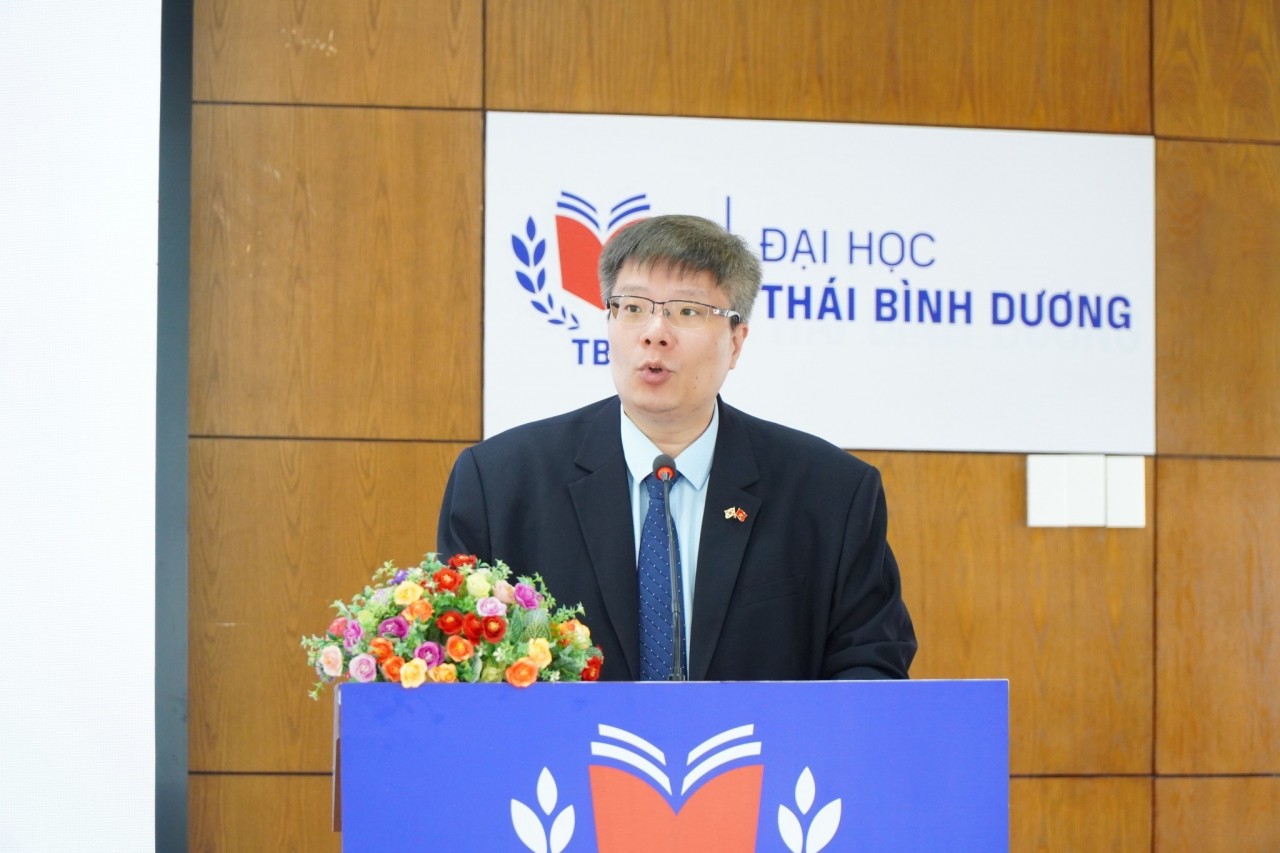 |
| Dr. Tran Hai Linh (Photo: VKBIA) |
He recommended several key areas where the overseas Vietnamese business community can play a significant role, including:
Enhancing competitiveness: Supporting market connections, standardizing corporate governance according to global norms, and leveraging knowledge of Viet Nam’s strengths and international trends.
Promoting technology transfer, digital transformation, and green development: Overseas Vietnamese entrepreneurs are active in core technology fields such as artificial intelligence, semiconductors, automation, and new energy. With appropriate mechanisms to attract them, Viet Nam can narrow the technological gap and participate more deeply in global supply chains.
Supporting innovative startups: Bringing capital, management expertise, new growth models, and international networks to help Vietnamese startups expand globally and form globally competitive “Make in Vietnam” enterprises.
Participating in domestic value chains: Strengthening regional and sectoral linkages, particularly in areas where Viet Nam has advantages such as processing and manufacturing industries, logistics, e-commerce, high-tech agriculture, and high-quality tourism and services.
He emphasized that with a favorable environment and stable investor-protection mechanisms, overseas Vietnamese entrepreneurs can become strategic bridges to help Viet Nam realize its goal of becoming a developed nation by 2045, with many globally competitive private enterprises and a private sector serving as a principal driver of the new growth model.
Associate Professor, Doctor Tran Le Hung (overseas Vietnamese in France, lecturer at the Paris School of Engineering - Gustave Eiffel University) proposed establishing and operating research and development (R&D) centers in public-service units, state-owned corporations, and private enterprises, especially in strategic industries and high-tech sectors. This model aims to directly address practical challenges faced by enterprises, modernize production processes, leverage the intellectual capacity of Vietnamese worldwide, and create an environment where domestic experts can access international scientific standards and gradually achieve technological self-reliance.
Developing high-quality human resources and attracting global Vietnamese intellectuals
Regarding Politburo Resolution No. 71-NQ/TW dated August 22, 2025 on breakthrough development in education and training, Tran Hai Linh proposed strengthening connections between universities, research institutes, and domestic enterprises with networks of overseas Vietnamese intellectuals; expanding the global Vietnamese talent networks; implementing student and international internship exchange programs; promoting university–institute–enterprise cooperation models; and developing internationally standardized innovation centers in Ho Chi Minh City, Hanoi, and Da Nang. He suggested establishing an open and transparent academic environment that encourages creative freedom and university autonomy. By effectively leveraging global Vietnamese intellectual capital, Viet Nam can shift from “latecomer learning quickly” to “creating new knowledge and technology.”
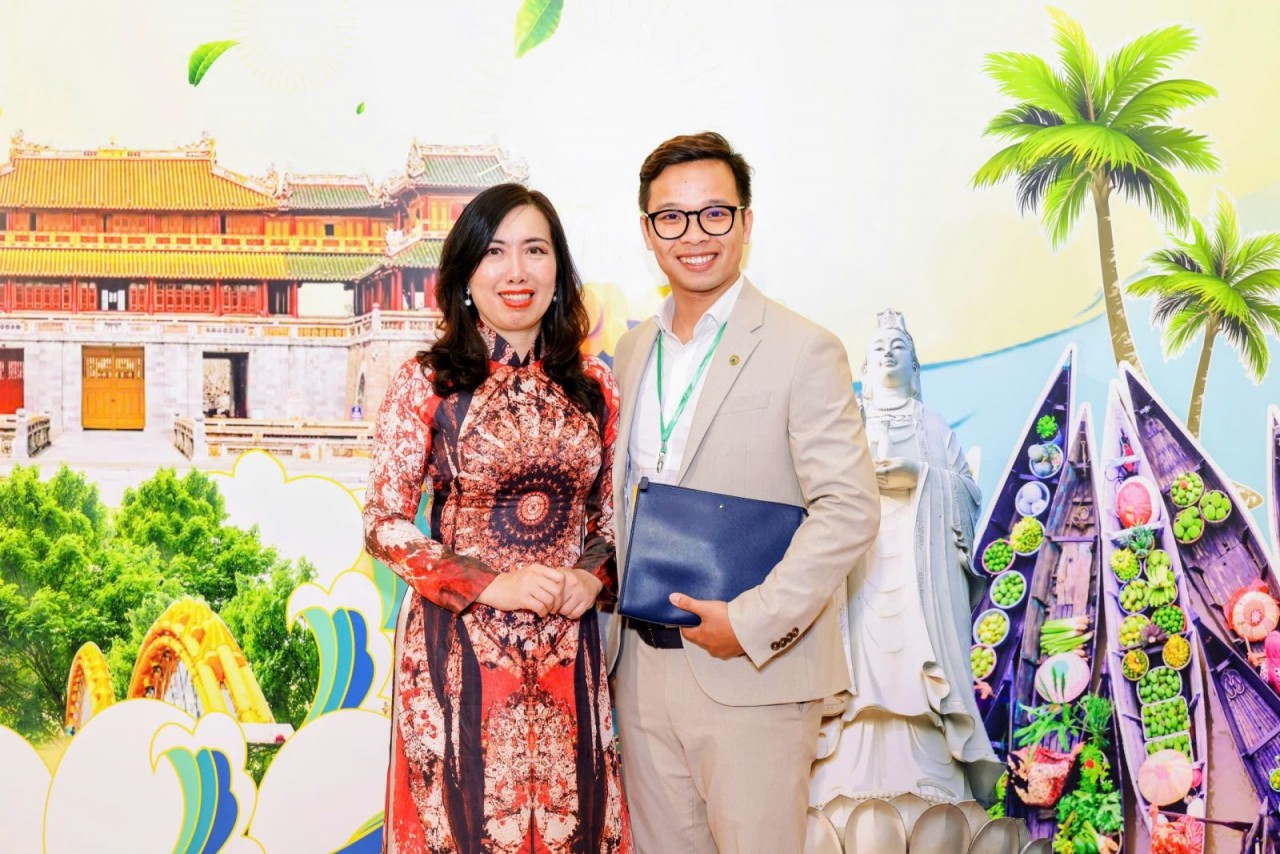 |
| Assoc. Prof. Dr. Tran Le Hung takes a commemorative photo with Vice Minister of Foreign Affairs Le Thi Thu Hang. (Photo: scov.gov.vn) |
Tran Le Hung praised the talent-attraction policy under Decree 179/2024/ND-CP and the initiative to invite at least 100 leading experts back to Viet Nam. He emphasized that beyond financial incentives, it is crucial to create an appealing working environment, opportunities for career advancement, and conditions for integration to ensure long-term commitment. He also highlighted the importance of identifying and nurturing the younger generations of overseas Vietnamese (F1, F2), considering them as a key resource capable of connecting Viet Nam with the global community. Competitions and awards related to science, technology, and culture could serve as important channels to identify young talent.
Huynh Tan Dat, President of the Vietnamese Students’ Association in Australia (SVAU), suggested that the Documents include specific mechanisms for mobilizing overseas Vietnamese youth and students. He recommended promoting short-term exchange programs, recognizing academic and international experience, and encouraging practical contributions to domestic innovation programs. Mobilization efforts should include performance-measurement mechanisms to ensure real effectiveness. He also proposed recognizing the study, research, and internship experience of overseas Vietnamese students when awarding scholarships or recruiting young scientific personnel; developing mechanisms for international credit transfer and micro-internships (4-12 weeks) between domestic and foreign educational institutions to facilitate skills and knowledge transfer. Furthermore, he suggested encouraging research-oriented universities to expand international cooperation programs with networks of overseas Vietnamese scholars and students; enabling overseas Vietnamese lecturers to teach, supervise research, and provide scientific consultancy to enhance research capacity, commercialize research outcomes, and expand the global presence of Vietnamese knowledge.
Promoting the strength of people-to-people diplomacy and global Vietnamese cultural identity
According to Tran Hai Linh, with a community of more than 6 million Vietnamese in 130 countries, overseas Vietnamese are a strategic resource for people-to-people diplomacy. He stated that people-to-people diplomacy can contribute in three key ways:
Promoting national image: Every Vietnamese person abroad serves as a cultural ambassador, spreading Viet Nam’s identity and compelling development story to international audiences.
Building Viet Nam’s soft power: Connecting experts, intellectuals, businesses, and international institutions to enhance national standing and participate more deeply in global rule-shaping processes.
Supporting and protecting national interests: Overseas Vietnamese act as trusted bridges helping Viet Nam expand markets, promote investment cooperation, trade, and technology transfer, and directly contribute to economic growth.
Tran Le Hung noted that intellectuals and young talents are not only ambassadors of Viet Nam but also frontline contributors on the ideological front - helping promote the country’s image, counter false narratives, and advance people-to-people diplomacy, scientific diplomacy, and cultural diplomacy in the digital age.
Huynh Tan Dat proposed strengthening support for Vietnamese student associations and clubs overseas in their efforts to preserve language, culture, and traditions, and encouraged cooperation between these organizations and domestic educational institutions through cultural and language exchange programs (Vietnamese language) to connect younger generations with their homeland.
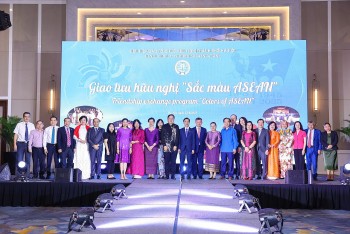 | Strengthening People-to-People Diplomacy of Hanoi in the Context of Innovation With the motto “proactive, flexible, creative, and effective,” the Hanoi Union of Friendship Organizations has expanded its international cooperation network, applied technology, and implemented various ... |
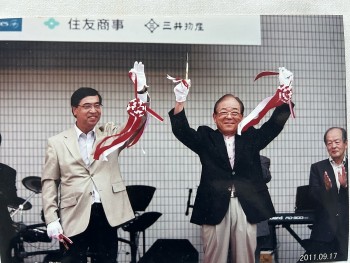 | Viet Nam-Japan Friendship Association Boosts Cultural Diplomacy and People-to-People Relation Cultural bridges and people to people exchange have always been a special foundation in Viet Nam - Japan relations. From stories spreading culture, festivals attracting ... |
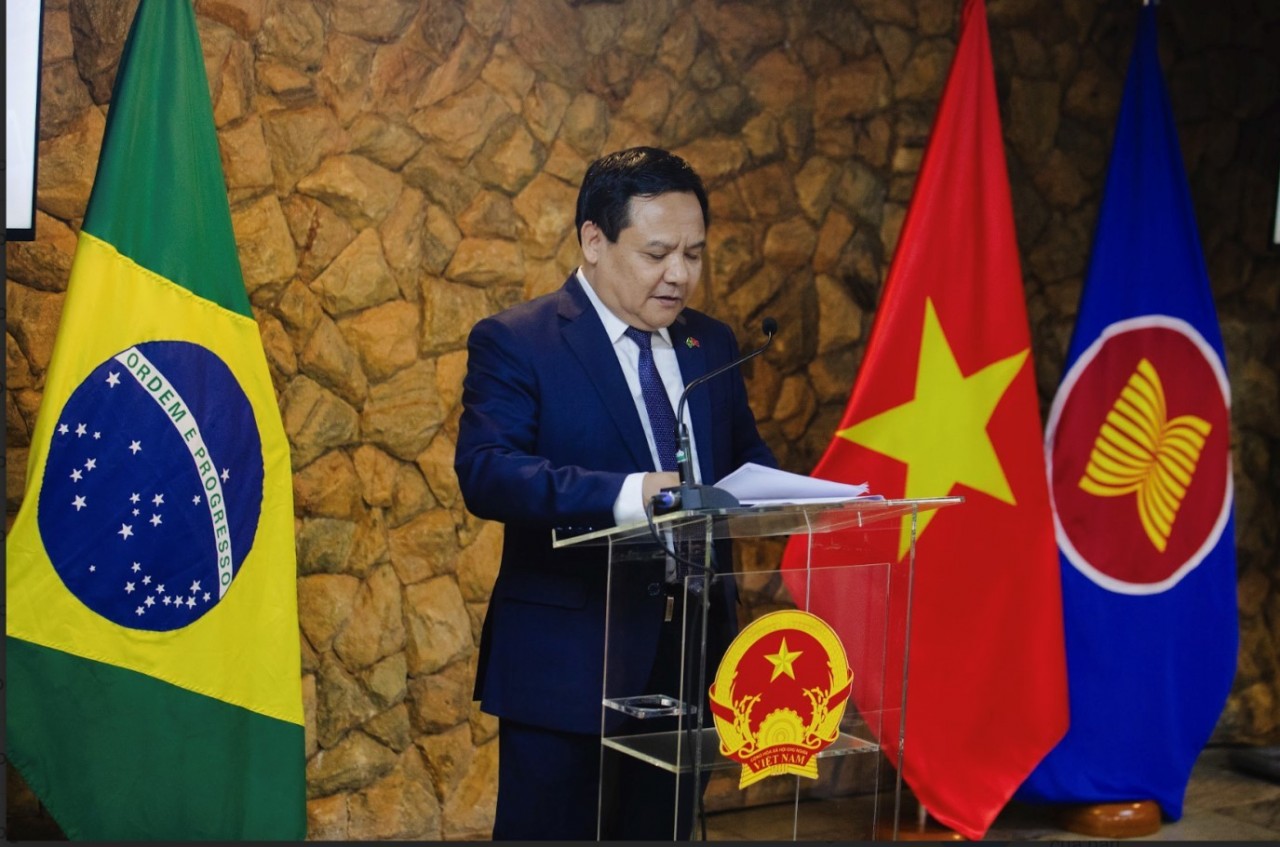 National
National
Brazilian Politicians and Scholars Honor the Historical Role of the Communist Party of Vietnam
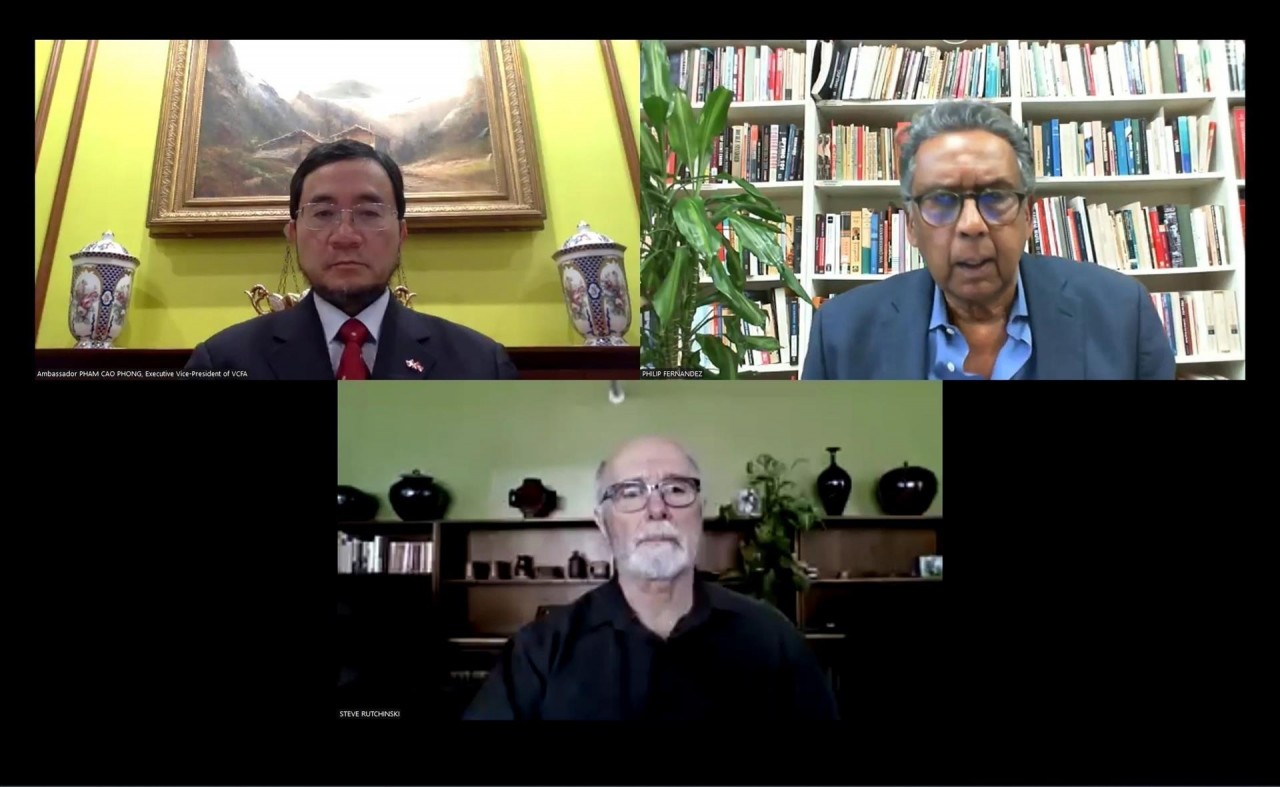 National
National
Canadian Friends Highlight Significance of 14th National Congress of Communist Party of Vietnam
Recommended
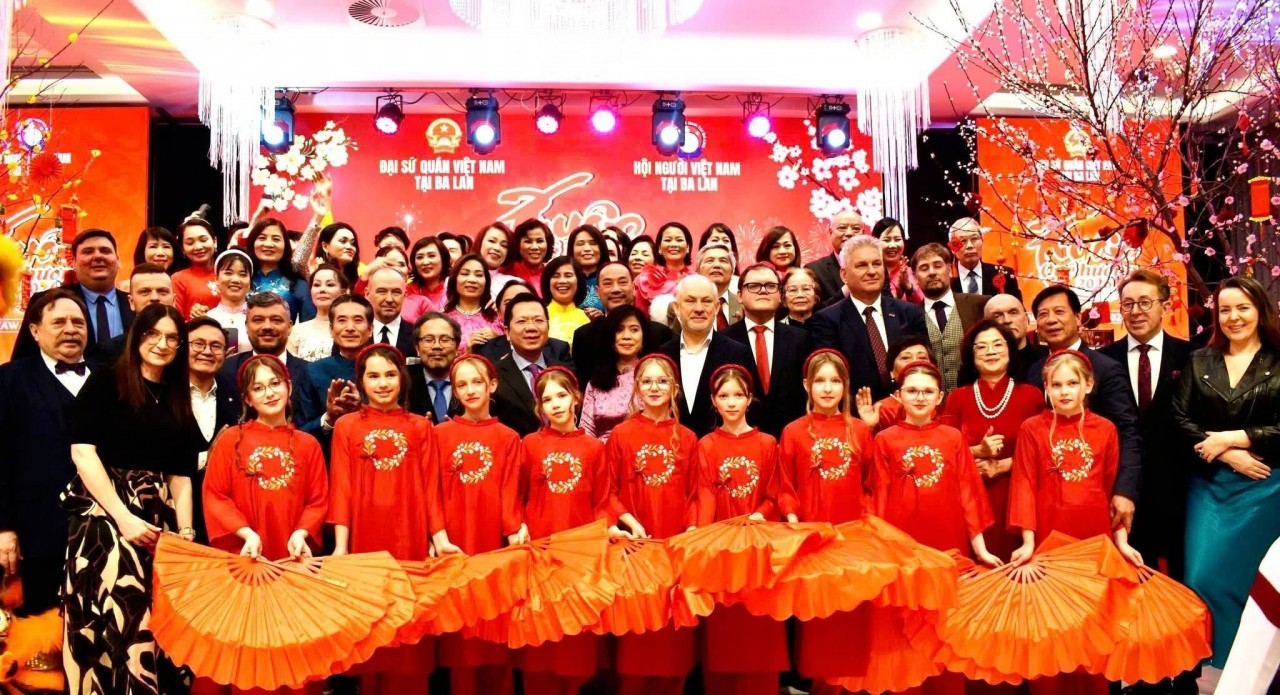 Overseas Vietnamese
Overseas Vietnamese
Vietnamese Communities in Russia, the United States, Canada, and Poland Celebrate the Lunar New Year of Binh Ngo 2026
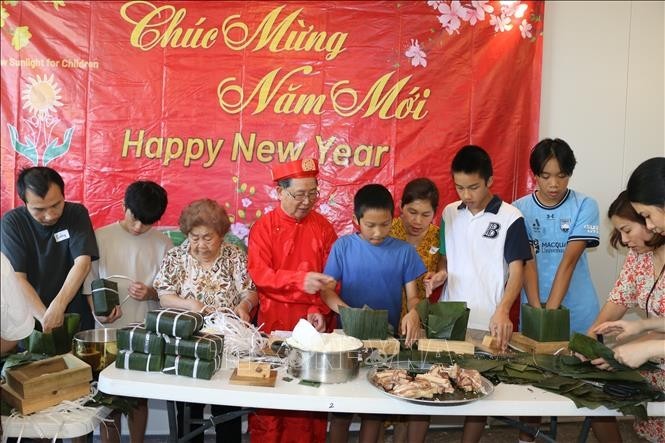 Overseas Vietnamese
Overseas Vietnamese
Vietnamese Community in Australia Wraps Banh Chung to Welcome Tet
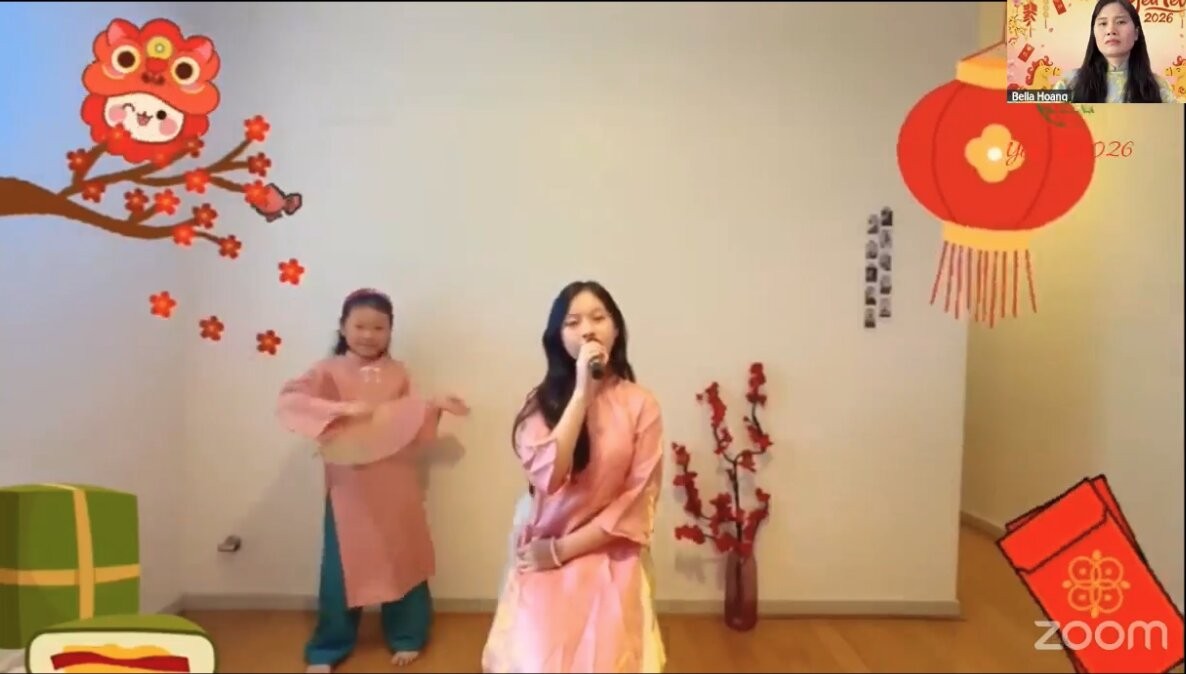 Overseas Vietnamese
Overseas Vietnamese
Gala Yeu Tet 2026 Connects Overseas Vietnamese Children from Many Countries
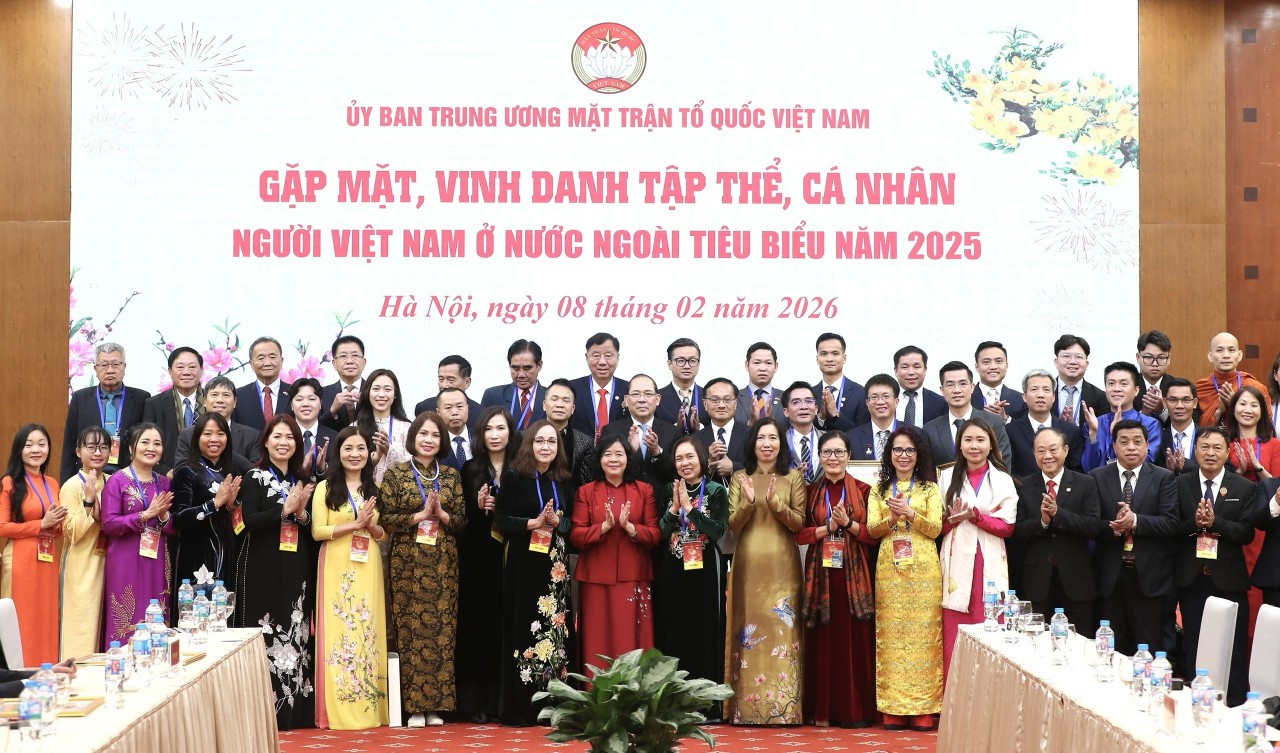 Overseas Vietnamese
Overseas Vietnamese
Vietnam Calls on Overseas Vietnamese for Breakthrough Ideas and Development Initiatives
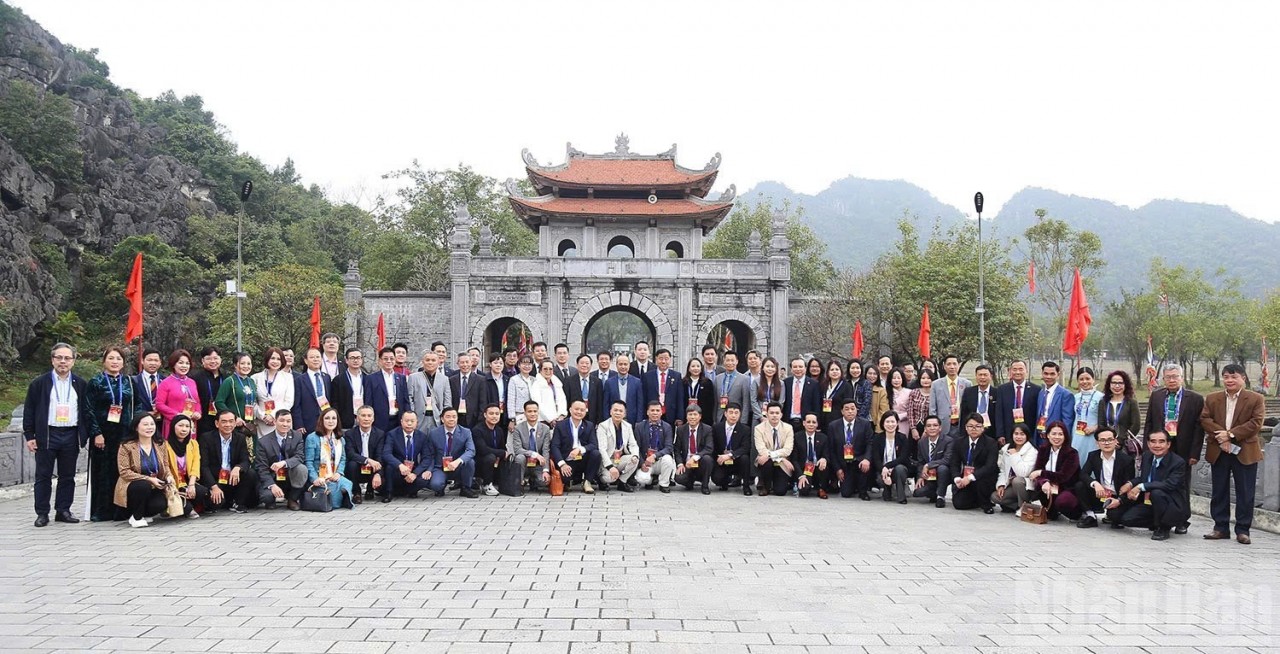 Overseas Vietnamese
Overseas Vietnamese
Connecting Overseas Vietnamese with Their Roots
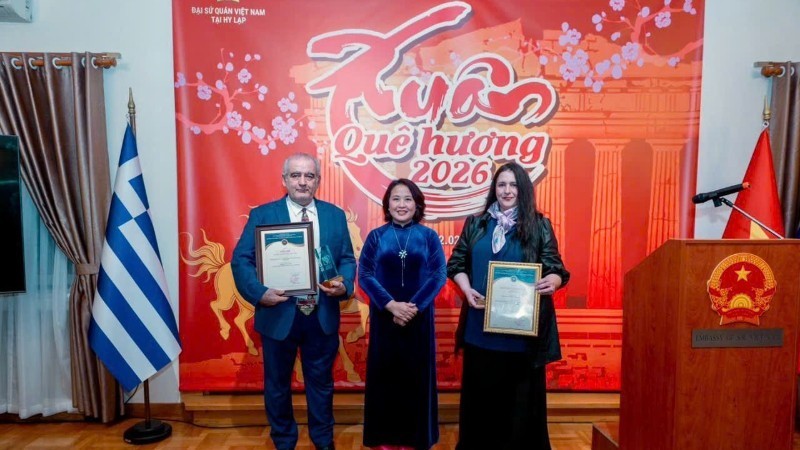 Overseas Vietnamese
Overseas Vietnamese
The Vietnamese Community in Greece Celebrates the Lunar New Year
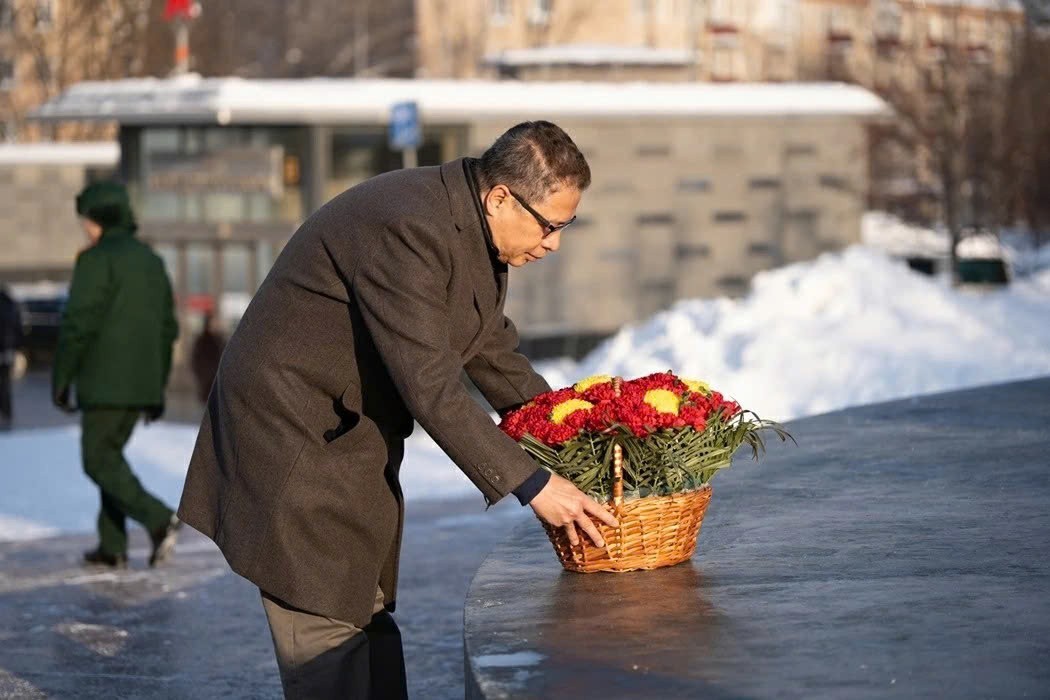 Overseas Vietnamese
Overseas Vietnamese
Laying Flowers in Commemoration of President Ho Chi Minh in Moscow
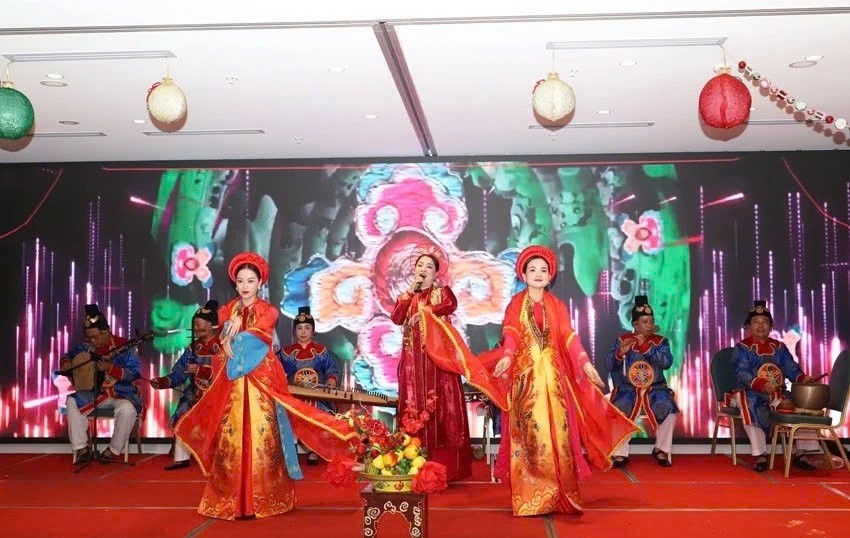 Overseas Vietnamese
Overseas Vietnamese

